MercoPress. South Atlantic News Agency
Economy
-
Friday, July 25th 2014 - 05:22 UTC
“The muddled case of Argentine bonds”, as seen by New York Times

The following piece was written by Floyd Norris, financial analyst from The New York Times and refers to the complicated process that has emerged from the ongoing battle between Argentina and the holdouts demanding full payment of sovereign bonds, plus accrued interests.
-
Friday, July 25th 2014 - 05:14 UTC
Argentina insists on Griesa for some insurance against the RUFO clause
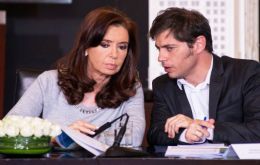
After failing to reach an agreement during Thursday's meeting with court-appointed mediator Daniel Pollack, Argentina reiterated that there could be no negotiations with speculative funds or 'vulture funds' until judge Thomas Griesa provides some insurance against possible liabilities related to the 'Rights upon Future Offers' (RUFO) clause.
-
Thursday, July 24th 2014 - 23:34 UTC
Brazil's priority is curbing resistant inflation, say central bank minutes

Brazil's central bank indicated on Thursday it is unlikely to cut interest rates any time soon and instead is focused on curbing resistant high inflation even as the economy flirts with recession. In the minutes of its last policy meeting, the bank stressed that interest rates at current levels should help ease inflation in coming years.
-
Thursday, July 24th 2014 - 22:55 UTC
Speculative funds denies any request to temporary suspend payment order

Argentine debt holdout investor Mark Brodsky, chairman of Aurelius Capital Management, said his group will not ask US Judge Thomas Griesa to suspend his payment order, after a story in Argentina's La Nacion newspaper on Thursday suggested that Paul Singer’s NML Capital Ltd could ask Griesa to reinstate the stay of injunction as requested by Argentina.
-
Thursday, July 24th 2014 - 07:01 UTC
In defiant speech CFK openly brushes aside any default “because Argentina has paid”

In a defiant speech President Cristina Fernández reiterated on Wednesday that Argentina will “not fall into default” and warned that “they will have to invent a new word” to explain how a country has paid its debt and “someone blocked it”.
-
Thursday, July 24th 2014 - 06:42 UTC
Xi's Latam visit ends in Cuba where China consolidated trade and financial relations
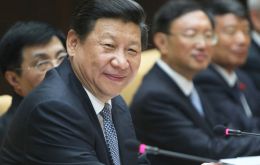
Chinese President Xi Jinping ended on Wednesday an eight-day trip through Latin America with a visit to eastern Cuba, where both the island's independence struggle against Spain and Fidel Castro's revolution began.
-
Thursday, July 24th 2014 - 06:20 UTC
World Bank praise for Peru as one of the most solid economies in the region
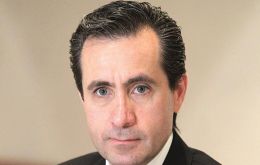
The World Bank's vice president for Latin America and the Caribbean, Jorge Familiar, on Wednesday highlighted Peru's economic growth over the past 10 years. Peru's average economic growth over the period has registered 6. 5% annually, allowing many Peruvians to escape poverty, said Familiar.
-
Thursday, July 24th 2014 - 06:18 UTC
Humala signs contract for pipeline that will make Peru a leading gas exporter of the region
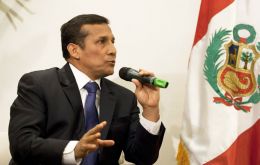
The consortium made up of Spanish energy company Enagas and Brazilian construction giant Odebrecht signed a contract on Wednesday with Peru's Energy and Mines Ministry for the construction and operation of a natural gas pipeline that will run from the Camisea gas fields to the Pacific port of Ilo.
-
Wednesday, July 23rd 2014 - 06:51 UTC
Argentina claims Griesa is blocking bondholders money and using 'vulture funds' language

Argentina reacted strongly to Tuesday's events in the New York federal court which denied its stay request, claiming Judge Thomas Griesa “did not solve absolutely any of the issues for which he summoned today's audience”, insisting with his “unbelievable ban” on structured bonds' collecting their payment.
-
Wednesday, July 23rd 2014 - 06:42 UTC
Holdouts want to sit down with Argentina and solve the dispute; 'countdown clock'
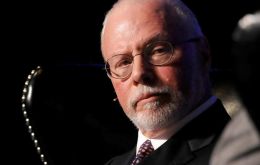
Following on Tuesday's audience with Judge Thomas Griesa, NML Capital the leading speculative fund litigating with Argentina, issued a release saying “it is willing to hold a meeting with 'Special Master' Daniel Pollack and Argentina to solve the dispute”.
